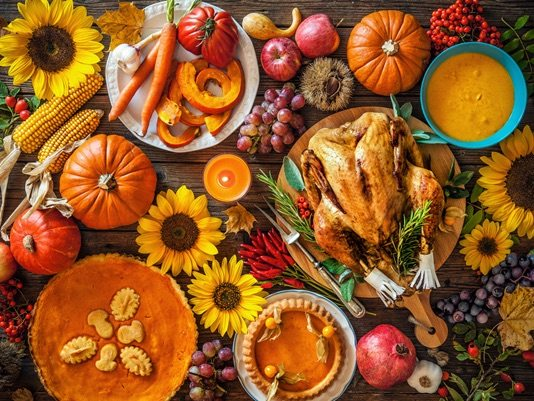Thanksgiving Day is an annual national holiday in the United States and Canada celebrating the harvest and other blessings of the past year. Americans generally believe that their Thanksgiving is modeled on a 1621 harvest feast shared by the English colonists (Pilgrims) of Plymouth and the Wampanoag people. The American holiday is particularly rich in legend and symbolism, and the traditional fare of the Thanksgiving meal typically includes turkey, bread stuffing, potatoes, cranberries, and pumpkin pie. With respect to vehicular travel, the holiday is often the busiest of the year, as family members gather with one another.
History
Plymouth’s Thanksgiving began with a few colonists going out “fowling,” possibly for turkeys but more probably for the easier prey of geese and ducks, since they “in one day killed as much as… served the company almost a week.” Next, 90 or so Wampanoag made a surprise appearance at the settlement’s gate, doubtlessly unnerving the 50 or so colonists.
Nevertheless, over the next few days the two groups socialized without incident. The Wampanoag contributed venison to the feast, which included the fowl and probably fish, eels, shellfish, stews, vegetables, and beer.
Since Plymouth had few buildings and manufactured goods, most people ate outside while sitting on the ground or on barrels with plates on their laps. The men fired guns, ran races, and drank liquor, struggling to speak in broken English and Wampanoag. This was a rather disorderly affair, but it sealed a treaty between the two groups that lasted until King Philip’s War (1675–76), in which hundreds of colonists and thousands of Native Americans lost their lives.
On October 3, 1863, during the Civil War, Abraham Lincoln proclaimed a national day of thanksgiving to be celebrated on Thursday, November 26. The holiday was annually proclaimed by every president thereafter, and the date chosen, with few exceptions, was the last Thursday in November.
